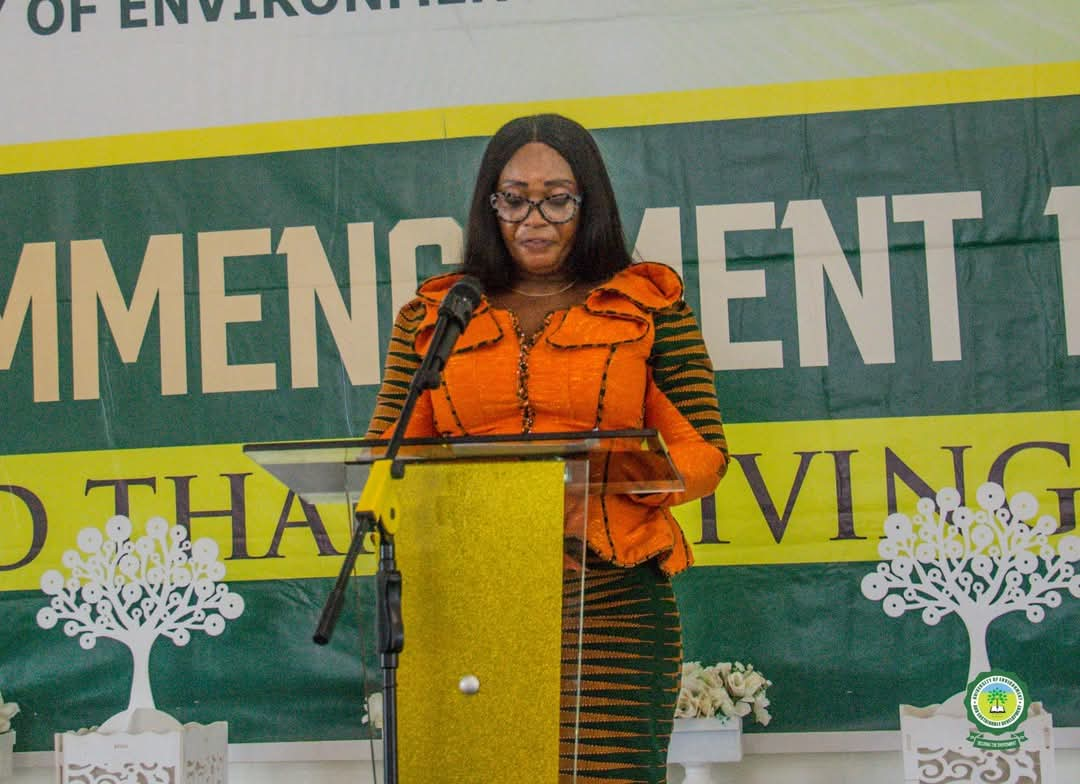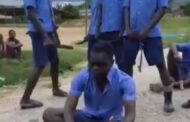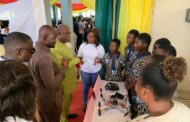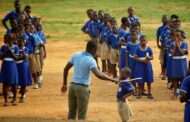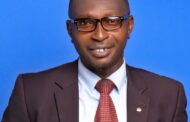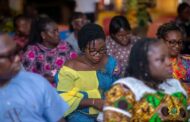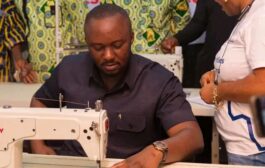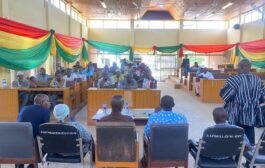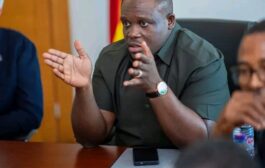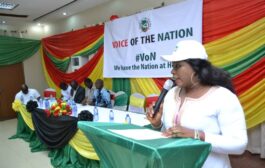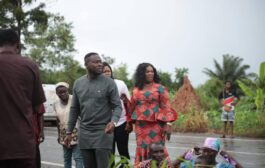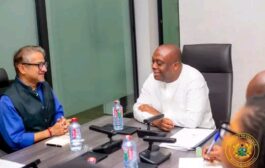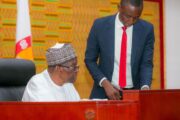The Eastern Regional Minister, Mrs. Rita Akosua Adjei Awatey, has affirmed the government’s commitment to supporting the University of Environment and Sustainable Development (UESD), Somanya to achieve its intended purpose.
She stated that her office would work closely with the relevant authorities to ensure the timely completion of stalled projects on campus to enhance teaching, research, and community engagement.
‘We shall also collaborate closely with the University’s leadership, traditional authorities, and development partners to secure additional resources, foster academic excellence, and expand opportunities for students and faculty.’
Currently, six GETFund projects at UESD remain incomplete. These include a three-storey lecture block, an ultramodern state-of-the-art laboratory, the main administration block, an additional auditorium, an ultramodern library, and a recreational facility.
Mrs. Rita Akosua Adjei Awate, Eastern Regional Minister made these remarks at the 5th Commencement Lecture of the University, held at its Auditorium, Multipurpose Building, and attended by members of the University community, partners, clergy, and traditional leaders.
The Commencement Lecture is an annual event marking the beginning of the academic year. This year’s theme is; “Forests for the Future: Strategies for Addressing Climate Change, Biodiversity Loss, and Sustainable Development in Ghana.”
The occasion also marked the Minister’s first official engagement with UESD since her appointment about a week ago, an event she described as significant. She pledged to collaborate closely with the University’s management, traditional authorities, and development partners to secure additional resources, foster academic excellence, and expand opportunities for students and faculty.
Hon. Mrs. Awatey highlighted that the Eastern Region, endowed with rich forest ecosystems, faces serious threats from deforestation, illegal mining, and climate change. She stressed that UESD’s mandate to “secure the environment for the public good” must translate into actionable research, policy advocacy, and community-driven solutions.
She further encouraged Management of the University to strengthen partnerships with organisations such as A Rocha Ghana to advance sustainable land-use practices, biodiversity conservation, and climate resilience. She also called for empowering students to become pioneers in green innovation and environmental leadership.
Prof. Eric Nyarko-Sampson, Vice-Chancellor
In his address, the Vice-Chancellor, Prof. Eric Nyarko-Sampson, reaffirmed UESD’s commitment to its mandate of securing the environment for sustainable development. One major step in fulfilling this mandate, he said, is the development and accreditation of new academic programmes.
In January 2025, the Ghana Tertiary Education Commission (GTEC) accredited six new programmes—three undergraduate and three postgraduate programmes.
These are: M.Phil. Sustainable Aquaculture and Biotechnology, M.Phil. Environmental Restoration Studies and M.Sc. Environmental Restoration Studies.
The Undergraduate Programmes are: B.Sc. Economics, B.Sc. Statistics and B.Sc. Fisheries Economics and Management.
Prof. Nyarko-Sampson announced that these programmes have been advertised for prospective students, and preparations are underway to roll them out.
He also noted that UESD successfully graduated its first batch of students in November 2024.
The National Director of A Rocha Ghana, Dr. Seth Appiah-Kubi, served as the Guest Speaker and addressed the theme “Forests for the Future: Strategies for Addressing Climate Change, Biodiversity Loss, and Sustainable Development in Ghana.”
Dr. Seth Appiah-Kubi, National Director of A Rocha Ghana emphasised that climate change is the most pressing global challenge today, manifesting in extreme weather conditions such as prolonged droughts, water scarcity, wildfires, rising sea levels, and floods.
He also stressed the importance of biodiversity, describing it as the foundation of life on Earth.
The loss of biodiversity, he warned, threatens food security, clean water access, and overall human survival.
Dr. Appiah-Kubi pointed out that climate change, biodiversity loss, and pollution are making the achievement of the Sustainable Development Goals (SDGs) increasingly difficult. He called on the government, communities, civil society organizations, and academic institutions like UESD to collaborate on strategies to address these challenges.
The event also featured solidarity messages from GTEC and representatives of traditional rulers from the Yilo and Manya Krobo Municipalities.
Source:Mybrytfmonline.com/Obed Ansah/UESD



